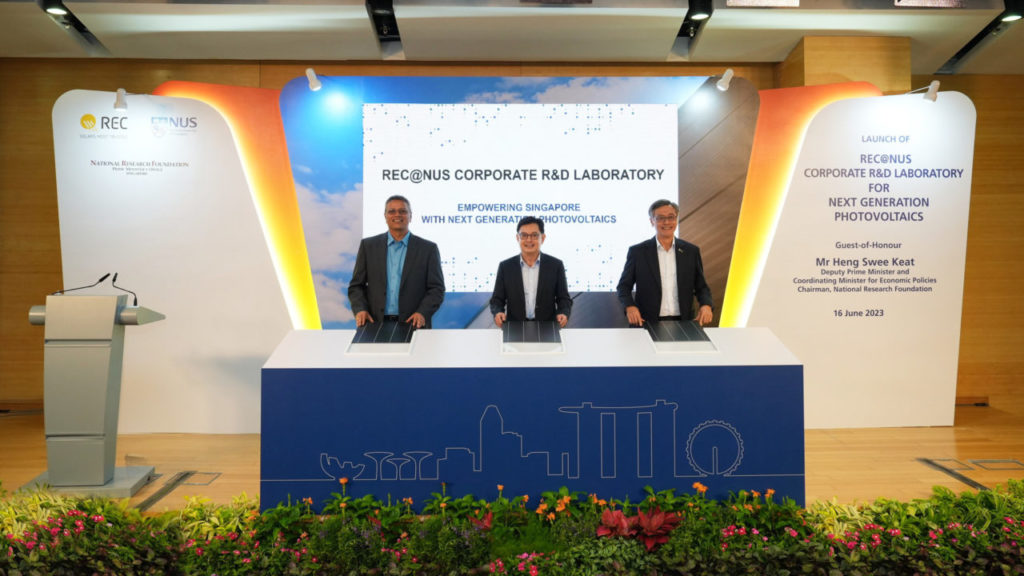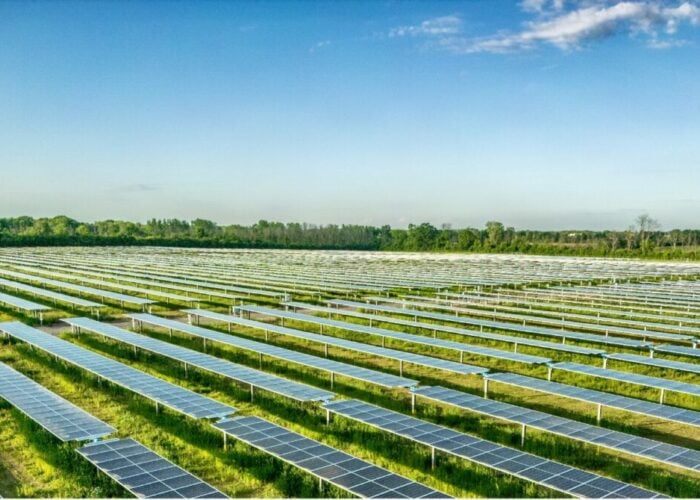
The National University of Singapore (NUS) and REC Solar, the solar power arm of the Singaporean Renewable Energy Corporation, have launched a S$77 million (US$57.4 million) solar cell research initiative.
The project, dubbed the REC@NUS Corporate R&D Laboratory for Next Generation Photovoltaics, will be led by two co-directors, professor Amrin Aberle, CEO of the NUS’ Solar Energy Research Institute of Singapore, and Shankar G Sridhara, chief technology officer of REC Solar. The university announced that the initiative will develop and commercialise what the university called “disruptive” PV technologies, based on perovskite-silicon tandem solar cells in particular.
Try Premium for just $1
- Full premium access for the first month at only $1
- Converts to an annual rate after 30 days unless cancelled
- Cancel anytime during the trial period
Premium Benefits
- Expert industry analysis and interviews
- Digital access to PV Tech Power journal
- Exclusive event discounts
Or get the full Premium subscription right away
Or continue reading this article for free
“NUS’ strong research capabilities and technology leadership, coupled with active industry collaborations, have enabled the university to make significant advances in PV technologies,” said NUS president professor Tan Eng Chye. “I have every confidence that REC and NUS will achieve technical breakthroughs to cross the 30% conversion efficiency barrier for large-area low-cost solar cells that would accelerate solar PV deployment in urbanised and space-constrained Singapore.”
The news follows LONGi’s unveiling of a tandem solar cell with an efficiency of 33.5% at last week’s Intersolar event in Germany, and interest in the technology is growing across the sector. However, LONGi’s cells are not commercially available, and both the NUS researchers, and their financial supporters in the Singaporean government, are eager to develop new solar technologies that are effective in the real world, and can be scaled up and deployed across Singapore.
The project was funded by Singapore’s Research, Innovation and Enterprise (RIE) 2025 plan, the latest in a series of five-year initiatives to fund research into technological innovation in Singapore. Through the RIE 2025, the Singaporean government will invest US$25 billion in new innovation, and both the government and the NUS researchers will be eager to see the project yield new solar developments in the coming years.
Singapore has made ambitious plans for its solar sector, aiming to produce 1.5GW of power by 2025, the point at which the RIE 2025 plan will come to an end, and 2GW by the end of the decade. According to the government, the country had a total solar capacity of 670MWp in the first quarter of 2022, so more progress will need to be made over the next two years.
“New technologies promising even higher efficiencies at much lower costs must be continuously developed in order to further increase the global generation of solar energy,” said Sridhara at an event launching the initiative. “As impressive as this ambition is, it must be matched with an equally ambitious plan to successfully industrialise it in a cost-effective manner.”






